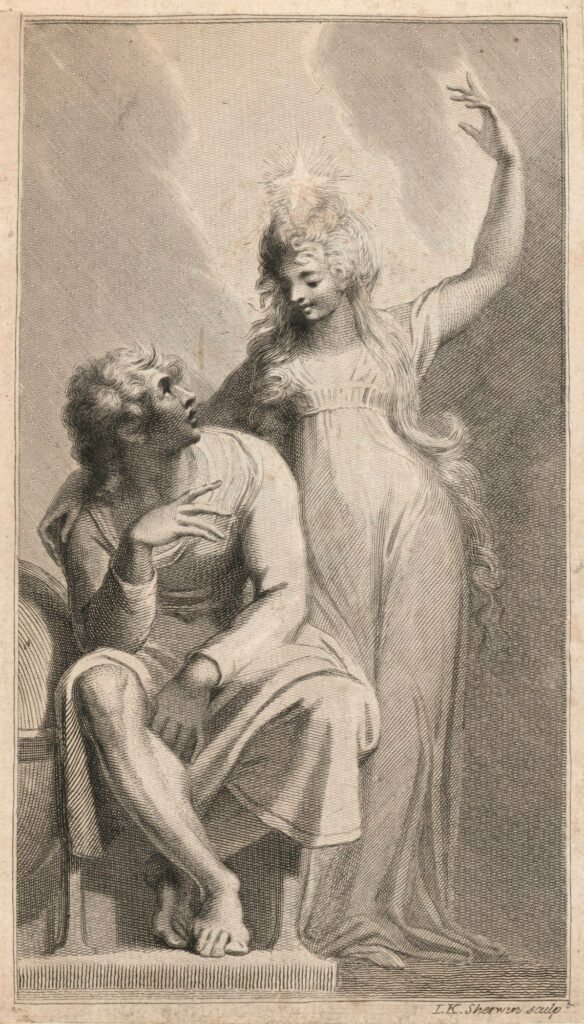MUSE
One of the nine Greek goddesses who preside over poetry, song, and the arts, invoked by male poets from Classical times through the Renaissance and after to grant them inspiration. So Homer begins the Iliad: "Sing, Goddess, the wrath of Achilles, Peleus' son." A psychological explanation of this ancient convention is offered by Jacoby: the Muse is the image of the poet's "unconscious creative potentiality" which "is not in his own power." As a symbol she is thus "an image of the mysterious woman in the psyche of the man" and is "associated with the remembrance of primeval creation, of the last and deepest mysteries." In the terms proposed by Jung, the Muse represents the poet's anima: "immortal," she is "disguised under the many names we give to creative impulses and ideas."
In Greek antiquity the Muses, daughters of Zeus and Mnemosyne (goddess of memory), originally indefinite in number, were first celebrated in Thrace near Mt. Olympus and Pieria; hence, that peak was regarded as their home and the Pierian Spring as the fount of learning. Probably before Homer's time their worship had spread southward to Helicon and thence to Delphi, eventually to become a common feature of Greek religious culture. By the 3rd century B.C. the festival of the Heliconian Muses at Thespai was patronized by Athens and the important guild of artists of Dionysus; here all the poetic and musical talent of Greece was consecrated. Elsewhere, observance of the Muses became attached to the worship of Apollo. The attribution of particular arts to each Muse is a late development, and there is some duplication. The Muses are:
Calliope (epic or heroic poetry);
Clio (history, lyre-playing);
Erato (love poetry, hymns, lyre-playing);
Euterpe (tragedy, flute-playing, lyric poetry);
Melpomene (tragedy, lyre-playing);
Polymnia or Polyhymnia (hymns, pantomime, religious dancing);
Terpsichore (choral dancing and singing, flute-playing);
Thalia (comedy); and
Urania (astronomy, i.e. cosmological poetry).
From Daniel Hoffman, Muse in A. Preminger and T.V.F. Brogan ed., The New Princeton Encyclopedia of Poetry and Poetics 1993
☙
Descendant of:
MYTHOLOGY AND THE CLASSICAL WORLDTexts with this theme:
- Lebenstraum, D 1A, D 39 (Gabriele von Baumberg)
- Als ich sie erröten sah, D 153 (Bernhard Ambros Ehrlich)
- Idens Nachtgesang, D 227 (Ludwig Theobul Kosegarten)
- Die vier Weltalter, D 391 (Friedrich von Schiller)
- Todesmusik, D 758 (Franz Adolph Friedrich von Schober)
- Der Musensohn, D 764 (Johann Wolfgang von Goethe)
- Der Sieg, D 805 (Johann Baptist Mayrhofer)


